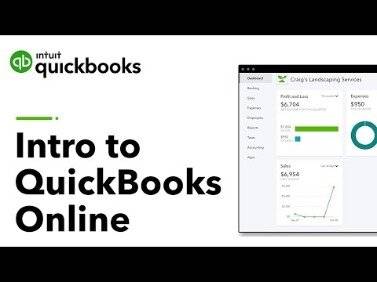4 Qualities to Look For When Hiring an Accountant
Content
- Things to Consider When Hiring an Accountant (or other Professional) for Your Business
- Choose a certified or chartered accountant
- Well-researched advice
- Will an SPD Posted on Our Company’s Intranet Satisfy ERISA’s Requirement That SPDs Be Delivered to Participants?
- Good accountants will help your company grow

Someone with in-depth knowledge of the tax code may also be able to find you additional savings. An accountant can also help you choose the best financial management strategies for your business, which can reduce your liabilities at tax time. The right time to hire an accountant depends on the size of your business and its specific needs.

Current programming assists accounting experts proficiently with achieving assignments while giving them more profound knowledge of their organization or accounting and financial management. Openness is vital in any work however it’s particularly significant for somebody who exclusively deals with an organization’s accounting and financial management. The subtleties of accounting are convoluted and challenging to get a handle on for any individual who is not prepared for accounting requirements. Although every organization has different needs, many recruiters and hiring managers look for accountants with the following skills and qualifications.
Things to Consider When Hiring an Accountant (or other Professional) for Your Business
Software can take on most of the automated aspects of accounting, such as simple bookkeeping and filing quarterly payroll tax returns. Consider not only your company’s current needs but also those in the near future. For example, don’t search for a bookkeeper when you think you’d eventually like to turn over payroll duties to someone else. You can likely combine these two tasks into an accounting clerk position.
What are good questions to ask an accountant?
- How does the legal structure of my business affect my taxes?
- Am I on track for my growth goals?
- What are the industry-specific tax regulations that I should know about?
- What can I cut down for better cash flow?
Each person should consult his or her own attorney, business advisor, or tax advisor with respect to matters referenced in this post. Bench assumes no liability for actions taken in reliance upon the information contained herein. Ensure the accountant has a thorough knowledge of the latest IRS tax laws and federal, state, and local regulations that affect your business. General accountants typically charge less than CPAs, which is helpful for businesses on a tight budget or that are just starting out.
Choose a certified or chartered accountant
Just as you would not hire an employee without an interview and a careful analysis of their resume, practice due diligence in your choice of accountant. Do a background check on the accounting firm and ask for client references, Cordano said. Look them up online to see if there are any regulatory complaints or marks on their record. The amount of advice you need or want depends upon your financial knowledge and experience. If you need a lot of help, select a firm that offers in-depth financial counseling. After you’ve narrowed your search, it’s important to interview candidates.

Start by asking any friends or family members who own small businesses if they would recommend their accountant. The answers to both questions could prove useful at a later stage, when you come to interview candidates. It’s even better if they’ve worked with companies in similar market sectors to yours, as that will help them understand the unique needs of your business. If they do, it’s a good sign as you’ll know they should be able to handle your growing needs over time. Once you’ve decided it’s time to hire an accountant, the next step is to choose which accountant to hire.
Well-researched advice
You can also get advice from your chamber of commerce and local business organizations. Explore product experiences and partner programs purpose-built for accountants. The exact level of onboarding can depend on your new accountant’s experience level. A more seasoned accountant may need a less involved process, whereas a newer one might need more guidance. If you plan on recruiting an accountant as a consultant, get a written estimate of what their services cost.
Tasks such as bookkeeping, tax preparation and general financial management might not require a certified or chartered accountant. But you will almost certainly need one if your company grows to the point when you need a loan, or if you’re ever audited. When looking for an in-house accountant, check out websites such as Glassdoor.com to see what accountants in similar companies earn.
The above is true when your small What To Look For When Hiring An Accountant is newly founded, and needs a solid foundation for growing successfully. Accountant always uses their own preferred accounting software if which they have expertise. There is a chance that they have been using that software for many years.
They can also serve as a chief financial officer for your business and offer future financial planning. Additionally, as your business grows, so do the scope and complexity of your financials. An accountant can be by your side during this time to ensure everything remains compliant and accurate.

